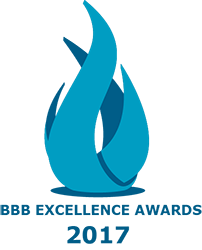Tax Deductions for Accessible Home Modifications
Have you spent money during the last year on home modifications or installing special equipment in your home to accommodate a medical condition or disability? You will be pleased to know that you may be able to recoup some, if not all, of the costs. Both the Federal Government and many states offer tax incentives for individuals making accessibility modifications to their home.
Medical Deductions
Costs incurred to implement accessibility modifications in your home are an eligible medical deduction on your Federal Income Tax under “Medical and Dental Expenses”. You can deduct only the amount of eligible medical and dental expenses that is more than 7.5 percent of your adjusted gross income.
As part of your medical expenses, you can include amounts you paid for special equipment installed in a home, or for improvements, if their main purpose was medical care for you, your spouse, or a dependent.
The cost of permanent improvements (such as an elevator) that increase the value of your property may be partly included as a medical expense. The cost of the improvement is reduced by the increase in the value of your property–the difference is a medical expense.
If the value of your property is not increased by the improvement, the entire cost is included as a medical expense. Certain improvements made to your home for accessibility and to accommodate a disability do not usually increase the value of the home and the entire cost can be included as a medical expense. These improvements include, but are not limited to, the following items:
- Constructing an accessible entrance or exit wheelchair ramps for your home.
- Widening doorways at entrances or exits to your home for accessibility.
- Widening or otherwise modifying hallways and interior doorways.
- Installing railings, support bars, or other modifications to bathrooms.
- Lowering or modifying kitchen cabinets and equipment.
- Installing porch lifts and other forms of lifts (but elevators generally add value to the house).
- Modifying fire alarms, smoke detectors, and other warning systems.
- Modifying stairways.
- Adding handrails or grab bars anywhere (whether or not in bathrooms).
- Modifying hardware on doors.
- Modifying areas in front of entrance and exit doorways.
- Grading the ground to provide wheelchair access to the residence.
- Only reasonable costs to make a home accessible are considered medical expenses. Additional costs for personal motives, such as for architectural or aesthetic reasons, are not eligible medical expenses.
- Amounts you pay for operation and upkeep of a capital asset qualify as medical expenses, as long as the main reason for them is medical care. This rule applies even if none or only part of the original cost of the capital asset qualified as a medical care expense.
- Improvements to property rented by a person with a disability are also an eligible medical expense. IRS Publication 502 indicates that “amounts paid by a renter to buy and install special plumbing fixtures in a rented house for a person with a disability, mainly for medical reasons, are medical expenses.”
- As written, it appears that qualifying expenses are limited to special plumbing fixtures, yet upon further discussion with the IRS, it is intended that conditions which apply to an owner occupied property (listed above), also apply to rental property.
Example : John has arthritis and a heart condition. He cannot climb stairs or get into a bathtub. On his doctor’s advice, he installs a bathroom with a shower stall on the first floor of his two-story rented house. The landlord did not pay any of the cost of buying and installing the special plumbing and did not lower the rent. John can include the entire amount he paid as medical expenses.
In regards to State taxes, it is recommended you look into your State tax laws to see if they offer any local tax incentives for individuals making accessibility modifications to their home.
Finally, as always, it is recommended you check with your tax accountant if you have any additional questions.






